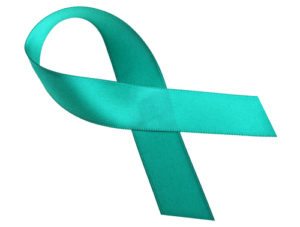Governor Christie Signs Expansion to SASPA Act for Sexual Assault Survivors
 Earlier this month, Governor Chris Christie singed a bill into law that expands the coverage of the fairly new Sexual Assault Survivors Protection Act. SASPA, as it more commonly called, became law here in New Jersey in May of 2016. SASPA closes an important loophole for survivors of sexual assault or abuse who are not covered by the Prevention of Domestic Violence Act or (PDVA). What protections does it offer victims?
Earlier this month, Governor Chris Christie singed a bill into law that expands the coverage of the fairly new Sexual Assault Survivors Protection Act. SASPA, as it more commonly called, became law here in New Jersey in May of 2016. SASPA closes an important loophole for survivors of sexual assault or abuse who are not covered by the Prevention of Domestic Violence Act or (PDVA). What protections does it offer victims?
Up until the enactment of SASPA, in order for a survivor of sexual abuse to obtain a family court restraining order they had to turn to the protections of the Prevention of Domestic Violence Act (PDVA). However, many survivors were not covered by the PDVA simply because the relationship they had with their abuser did not fit into one of the categories found in the PDVA. Specifically, the PDVA says that in order to file for or obtain a restraining order in family court in New Jersey, the survivor must have been subjected to domestic violence by a spouse, former spouse, present or former household member, by a person with whom the survivor has a child in common, or with whom the survivor anticipates having a child in common or with whom the survivor has had a dating relationship.
These relationship restrictions served to limit survivors being able to obtain a restraining order against abusers who may be co-workers, casual friends or even strangers. Now, Any person alleging to be a victim of nonconsensual sexual contact, sexual penetration, or lewdness, or any attempt at such conduct and who is not eligible for a restraining order as a “victim of domestic violence” may file an application with the family court alleging the this conduct or attempted conduct and seeking a temporary restraining order.
Since SASPA has become law here in the Garden State, a group of lawmakers put forth proposed legislation to expand SASPA and its protections to ensure New Jersey law recognizes and provides for the enforcement of protective orders originating from the 23 other states that also offer the protections established under SASPA. The changes also prevent a parent who reports that their child has been sexually assaulted by another parent from using it to avoid criminal charges against the offending-parent. Rather, the reporting-parent must report the incident of sexual assault to the Division of Child Protection and Permanency for investigation and possible legal action under applicable existing law.
Those proposed changes passed both houses in November 2016 and the bill was signed into law earlier this year by Gov. Christie. According to Sen. Jennifer Beck, one of the sponsors of the bill, the changes to SASPA, “will protect children who are at risk of being sexually abused by a parent. By making this change we will ensure that the Sexual Assault Survivor Protection Act continues to be used for the very reason we fought so hard to enact it – to protect all survivors from being further victimized by their abuser.”
Are you being abused or assaulted by a partner or spouse? We can help you get the legal protection you need to stay safe, and keep your children safe. Please contact us today to schedule your initial confidential consultation.
Read More


